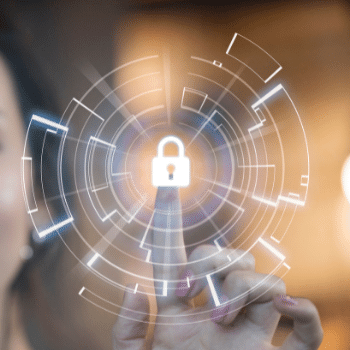Why worry — now more than ever — about good cybersecurity habits?
 You are probably aware of the importance of adopting proper cybersecurity practices — after all, these good habits, if followed daily, can protect us from cyber scams and fraud. However, adopting good habits has become more important than ever, and having excellent cyber hygiene is crucial. Want to know why? The answer is simple: the increase in cybercrime in recent months has been staggering, and much of the blame is to due to the new coronavirus (SARS-CoV2) pandemic!
You are probably aware of the importance of adopting proper cybersecurity practices — after all, these good habits, if followed daily, can protect us from cyber scams and fraud. However, adopting good habits has become more important than ever, and having excellent cyber hygiene is crucial. Want to know why? The answer is simple: the increase in cybercrime in recent months has been staggering, and much of the blame is to due to the new coronavirus (SARS-CoV2) pandemic!
If cybercriminals were a huge headache even before the COVID-19 crisis, the situation has gotten worse with the spread of the disease. According to a report that focused specifically on Latin America, Brazil suffered more than 3.4 billion cyber attack attempts in 2020. It is estimated that the increase was around 300%. WhatsApp cloning or hijacking scams, the most common in Brazil, claimed no less than 3 million victims last year. Are these statistics enough to convince you?
No? No problem: let’s take the financial impact of all criminal schemes on the corporate market. Globally speaking, according to the FBI, cybercrime caused a global loss of $4.2 billion in 2020 — a 20% increase compared to 2019, when a loss of “only” $3.5 billion was recorded. According to projections by Cybersecurity Ventures, if things don't improve urgently, the dent in the global economy will increase by an insane $10.5 trillion a year by 2025.
Why is cybercrime growing so much?
Let's make an analogy: if cybercrime were a vegetable, it would be planted in the most fertile soil and grown in the most suitable weather conditions possible. First, there was the COVID-19 crisis — the pandemic gave cybercriminals the perfect reason to devise scams and deceive inattentive Internet users. We have witnessed thousands of phishing campaigns that managed to ensnare employees of large corporations and global health institutions. Not to mention fake Emergency Relief Fund apps and vaccination programs.
But the COVID-19-related scams are not the only ones to blame. The pandemic drastically accelerated the digital transformation process, requiring companies to quickly modernize and digitalize. Many of them were forced to adopt technologies and infrastructures they were not prepared to deal with, such as cloud computing, which can create vulnerabilities and security breaches. Furthermore, many citizens were not accustomed to using the internet for shopping, banking… perfect for cybercriminals.
Resilience in tough times
The year 2020 — and these first few months of 2021 — have been very profitable for cybercrime. Phishing, ransomware, supply chain attacks have hit thousands of businesses at once… We need to fight back more than ever, and awareness of the human factor is one of the most important strategies... Therefore, we cannot waver: we need to continue adopting good security habits in our daily lives to mitigate these threats.
